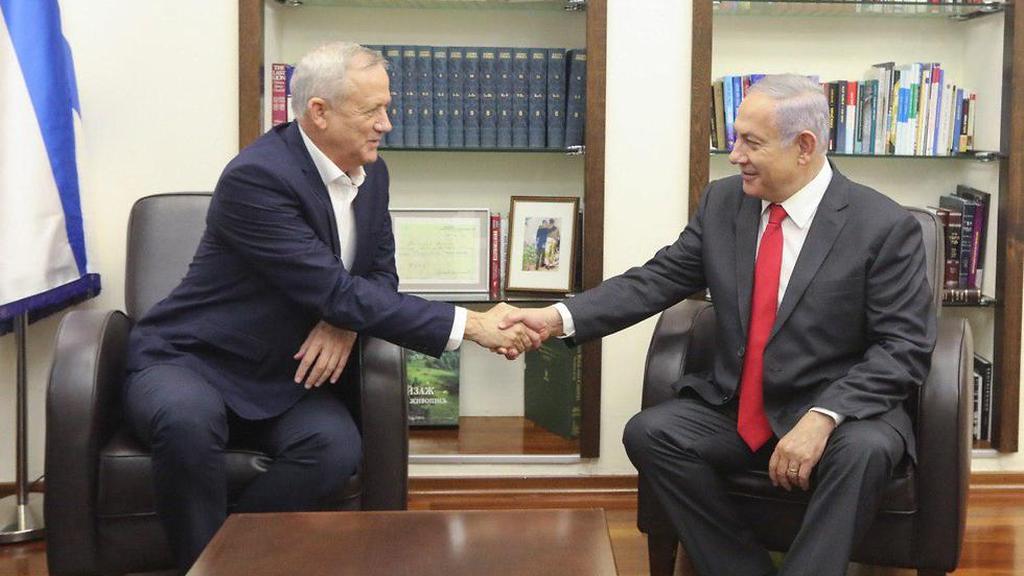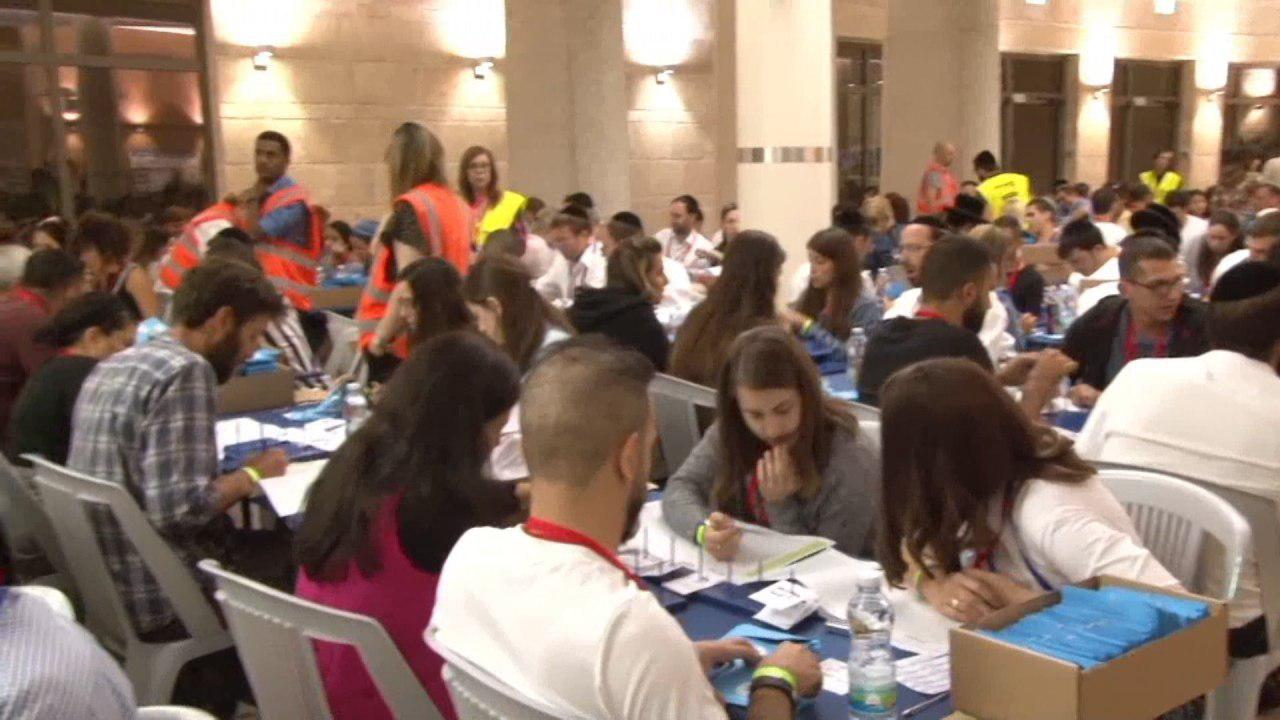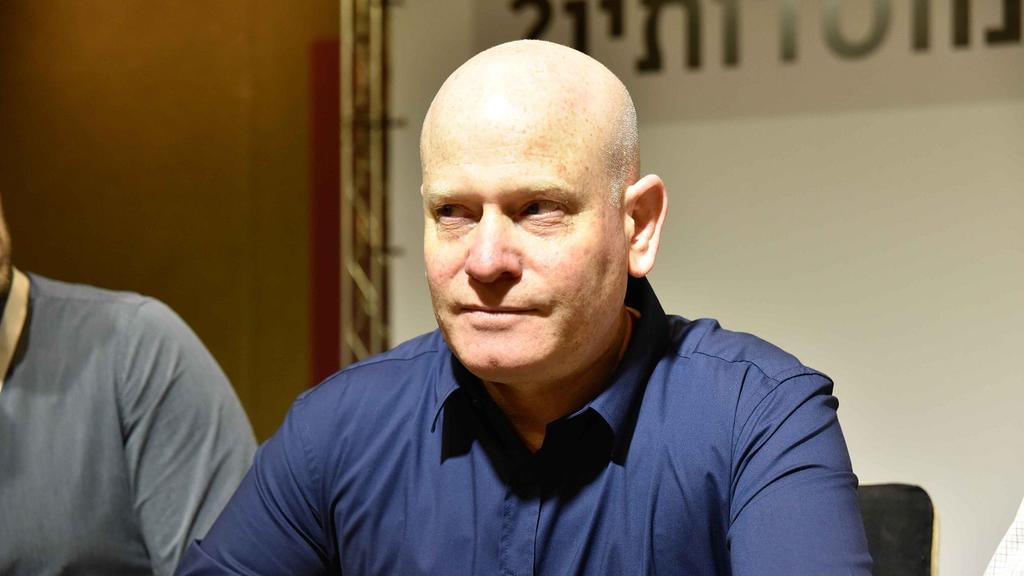The main Likud and Blue and White parties agreed Monday that if Israel does hold a third round of elections in a year, they will take place on March 2, 2020.
Knesset members have until midnight Wednesday to present a lawmaker who has mustered the support of 61 MKs or the parliament will be forced to dissolve itself and the country will hold fresh elections.
3 View gallery


Benny Gantz and Benjamin Netanyahu meet in an ultimately fruitless attempt to form a unity government in Tel Aviv last month
(Photo: Elad Malka)
Both Likud leader Benjamin Netanyahu and Blue and White leader Benny Gantz were unable to form a coalition government after the elections, leading to a 21-day period in which any lawmaker could propose another to form a government, providing the nominee had the support of 61 colleagues.
The Knesset Arrangements Committee, which administers all other parliamentary committees, was to meet to discuss the matter on Monday afternoon. If elections are to go ahead, a private bill to determine the date requires four readings to pass in the Knesset.
The Arrangements Committee was to convene as there are no sitting permanent committees due to the fact that no government was formed after the second round of Knesset elections in September.
Blue and White faction chair Avi Nissenkorn said that his party "will make every effort until the very last moment to prevent further and unnecessary elections for the State of Israel.
"As we promised the public, if Netanyahu avoids the establishment of a unity government and is forced to dissolve the Knesset, we have as much of a truncated election campaign as possible. I am glad that Likud and the other factions in the House have agreed to this move."
On Friday, Knesset legal adviser Eyal Yinon suggested March 3 as a preferred election date in the event that the Knesset does dissolve itself.
"Israel is in a deep political, constitutional crisis, the likes of which we have not seen before, [and] I am not sure how we get out of it," Yinon said.
"In any event, this obviously requires legislative amendments for funding, as party coffers are empty. A lot of money spent on the previous election has gone down the drain; the Central Election Committee coffers are also empty, " he said.
In addition to the preparations for the elections, Yinon also called for administrative preparations for a unity government.
"We cannot relax because on Wednesday at 23:59, we could receive a phone call informing us that there is a unity government.
"And a unity government would probably require legislative amendments during the two weeks given to those mandated to form a government and then we need to prepare to legislate for a rotation [of prime minister] in the Basic Law: The Government, which does not exist today. This would anchor in law an acting prime minister, detailing the president's outline [for a unity government] fortifications - all of which requires extensive preparations.
"We cannot afford to be almost the only professionals on the ground to come unprepared, because events are happening from moment to moment with very short notice."
3 View gallery


Central Elections Committee staffers count votes after the Sept. 2019 elections
(Photo: Alex Gamburg)
The director of the Central Elections Committee Orly Adas warned last week of a severe shortage of equipment and manpower as Israel seems likely to head into a third election.
During a briefing on the stages of preparation and the challenges you will be faced with, she said: "We have no headquarters, offices, equipment, the warehouses are completely empty. This is the current situation."
The commission's executive director also expressed concern over a severe shortage of personnel.
"It may sound dramatic, but to illustrate, try to put yourself in a situation in which the IDF only includes the general staff – with no bases, soldiers, divisions, ammunition - and tell the chief of staff that today you're going to war," she said.
"We have no people," Adas said. "The Central Elections Committee is a little 30-member team. On Election Day, we reach 45,000 staffers. We need to recruit the staffers and they need to have physically inspected 11,000 polling stations by the 70th day before the elections."


